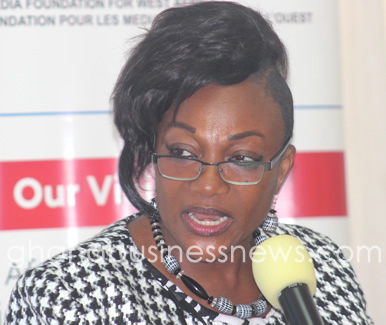Minister launches UN Day against Human Trafficking

Madam Otiko Afisa Djaba, the Minister of Gender, Children and Social Protection, on Tuesday, launched the United Nations Day against Human Trafficking, dubbed: “Blue Day,” in Accra.
The Day, which falls on July 30 annually, is intended to show compassion to victims of trafficking and also sensitise potential victims on the danger to prevent them from falling prey to traffickers.
The Minister said her Ministry considered human trafficking as an organised crime, which was the second in rating after drugs, with 60 per cent of its victims globally being women while 70 per cent in Africa and Ghana are children.
She said the adoption of the Global Plan of Action to combat Trafficking in Persons (TIP) by the UN in 2010, entreated member states to take actions to fight such serious crime that violated the rights of persons and to give support to victims.
Trafficking, she said if unregulated, would continue to intensify while individual rights were abused as the practice was lucrative, generating $150 billion in profits in 2014, for organised criminal groups perpetrating the act.
Combating it, she said, would require an intensive collective effort with active participation from the media, governmental and civil society groups, security agencies and community groupings such as schools and churches.
With earlier known forms of human trafficking being the purpose of sexual exploitation, current victims suffer forced and exploitative labour as well as domestic servitude, for which traffickers employ various strategies to deceive parents and potential victims especially children from rural areas.
Ms Djaba noted that the latest US TIP Report rated Ghana as a Tier Two Watch List country in spite of the varied efforts being pursued in the fight against human trafficking.
Ghana, according to her, was a source, transit and destination country for human trafficking with internal trafficking being more prevalent than external trafficking, a reason for which the country had multiplied its efforts to improve upon the rating.
She said government had allocated GH¢1.5 million to the Human Trafficking Secretariat under her ministry to combat the menace with the formulation of policies including the gender policy, child and family welfare policy as well as the social protection policy as regulatory frameworks to assist in the fight.
Ms Djaba called on the media to be apt in its support to the fight against human trafficking and irregular migration and stage a rigorous campaign to keep the public alert on the inherent risks involved in the practices.
The Minister observed that restoring victims of trafficking to normalcy was an expensive task and as such called for individual and corporate institutions to contribute into the Human Trafficking Fund to support the secretariat to give care, rehabilitation and assistance to victims of trafficking especially after rescue.
Ms Sylvia Ekra Lopez of the International Organisation for Migration underscored the need for the observance of the Blue Day, saying it is an occasion to “critically think about and recommit ourselves to reducing this situation and implement stated goals”.
She said the Day was an opportunity to give a voice to victims of trafficking to educate and sensitise the public while celebrating the work being done by development partners and stakeholders.
Mrs Akua Ofori Asumadu of the International Labour Organisation intimated that stakeholders in the fight against human trafficking had been working on the Domestic Workers Bill, which was soon to be introduced.
Source: GNA
